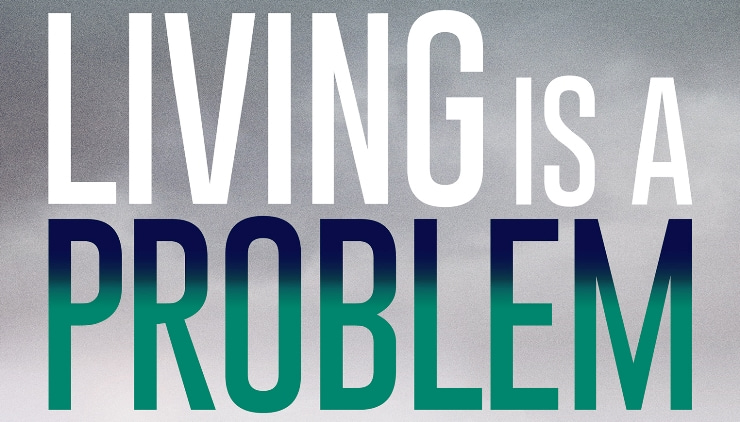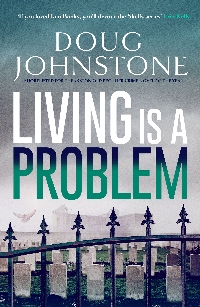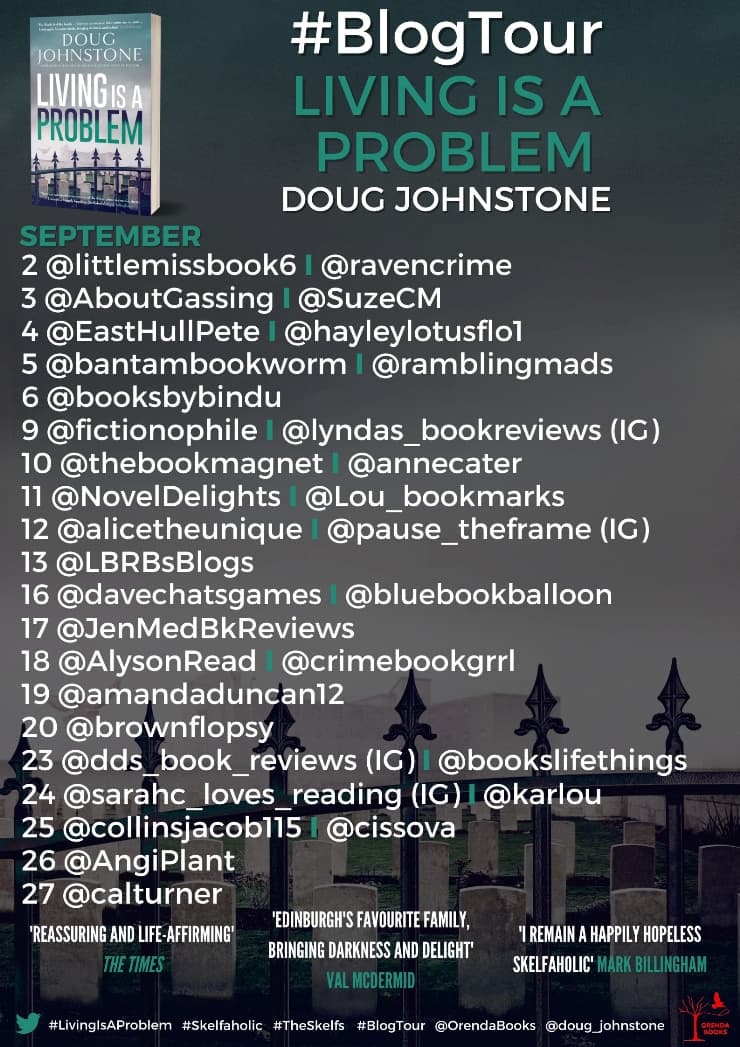Blog tour: Living is a Problem by Doug Johnstone

This post is part of a blog tour organised by Random Things Blog Tours. I received a free copy of the book in return for an honest review.
‘The Skelf women are back on an even keel after everything they’ve been through. But when a funeral they’re conducting is attacked by a drone, Jenny fears they’re in the middle of an Edinburgh gangland vendetta.
‘At the same time, Yana, a Ukrainian member of the refugee choir that plays with Dorothy’s band, has gone missing. Searching for her leads Dorothy into strange and ominous territory.
‘And Brodie, the newest member of the extended Skelf family, comes to Hannah with a case: Something or someone has been disturbing the grave of his stillborn son.
‘Everything is changing for the Skelfs … Dorothy’s boyfriend Thomas is suffering PTSD after previous violent trauma, Jenny and Archie are becoming close, and Hannah’s case leads her to consider the curious concept of panpsychism, which brings new danger, while ghosts from the family’s past return to threaten their very lives…’

In Living is a Problem, the sixth novel by Doug Johnstone about a family of private investigators/undertakers, it initially seems that the Skelfs truly are back to business as usual this time, facilitating their customarily innovative funerals and looking into respective cases of a disturbed grave, a missing Ukrainian refugee, and a drone attack at one of their services.
However, this has never been a “monster of the week” series, where characters appear to recover from and forget life-threatening events with unbelievable ease – something I’ve long admired about it.
It soon becomes apparent that one of the villains from The Opposite of Lonely is determined to make life difficult for the Skelfs, and may not even be brought to justice. Meanwhile, matriarch Dorothy’s boyfriend Thomas is behaving in concerning ways due to his trauma from that episode. Can Dorothy pull him back from the brink before he does something he can’t come back from?
Well, Doug Johnstone has done it again. I read most of Living is a Problem in one sitting, utterly agog. With three generations of interesting characters who always have plenty going on, Skelfs stories are naturally “all killer, no filler”, and this latest addition is no exception.
I always say this, but something that really appeals to me about these books and has me permanently looking forward to the next one is that each one teaches me new and fascinating things about biology and the universe.
This time around, it was human composting and mushroom suits; the discovery of mothers’, children’s, and siblings’ cells in one another’s bodies; and the similar-but-different ideas of Integrated Information Theory (IIT), panpsychism, and animism.
As ever, these don’t feel forced, being put to use as part of the story practically, as well as in service of its wider questions and messages about what it means to be a living human when suffering and death are unavoidable parts of the package (hence the title, lifted from Living is a Problem Because Everything Dies, a Biffy Clyro song Dorothy and her band perform at a communal funeral for a homeless fan).
These include questions around how we’re “expected” to grieve in particular situations versus the different, sometimes inconvenient and messy ways people actually grieve; the limitations of “dead” (the dead live on in the minds of the living, continue to influence our behaviour, and still have biological impact); and different ways of responding to mental disturbances such as hearing voices, or PTSD.
Therefore – much as you’d expect from a crime novel – there are hard-hitting themes and scary scenes of conflict and violence. However, there’s also the classic dark humour and odd bit of slapstick, as well as lovely, life-affirming parts where characters reach new levels of understanding and closeness in their relationships, and are brought together by performing or loving music.
Living is a Problem is a particularly gripping, fascinating, and transcendent addition to the Skelfs series.
